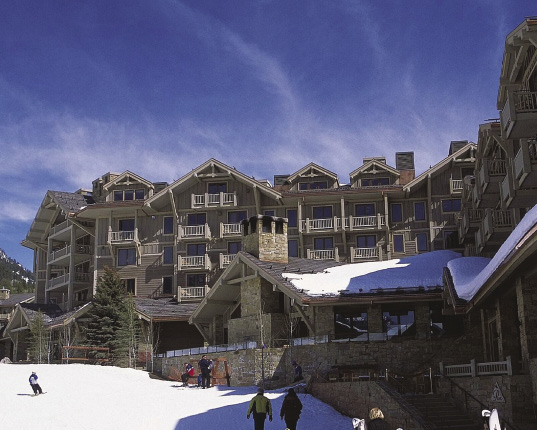- Home
- Media Kit
- Current Issue
- Past Issues
- Ad Specs-Submission
- Ad Print Settings
- Reprints (PDF)
- Photo Specifications (PDF)
- Contact Us

![]()
ONLINE

Strategic’s Strategy
Editors’ Note
Strategic Hotels & Resorts founder, Laurence Geller, is a more than 45-year industry veteran and a former vice chairman of the Commercial and Retail Council of the Urban Land Institute and the current chairman of the Industry Real Estate Financing Advisory Council of the American Hotel and Motel Association. He is also currently the chairman of the Board of Trustees of The Churchill Centre and Ambassador for North America for the Hotel and Catering Institutional Management Association of the U.K. Geller is a graduate of Ealing Technical College’s school of hotel management and catering as well as Chancellor of University of West London.
Company Brief
Strategic Hotels & Resorts, Inc. (Strategic Hotels; www.strategichotels.com) is a real estate investment trust (REIT) that owns and provides value-enhancing asset management of high-end hotels and resorts in the United States, Mexico, and Europe. The company currently has ownership interests in 17 properties with an aggregate of 7,762 rooms and operates under brands such as Four Seasons, Ritz-Carlton, Marriott, Fairmont, InterContinental, Westin, Hyatt, and Loews.
In light of the global economic crisis and continued volatility, how has Strategic Hotels performed?
The global economic crisis and continued uncertainty has certainly been a challenge. But I’m proud to say that despite the uncertainty, we’re in an enviable position compared to our peers. Individual hotel performance is strong and our balance sheet is positioned for growth but prepared for ongoing volatility. Additionally, we’re positioned to opportunistically grow our portfolio while also having the luxury of waiting for deals to come our way, as our properties offer significant ongoing organic growth opportunities.

Opening night at Michael Jordan’s Steak House
What was unique about the downturn for us was that we not only had to contend with the economic crisis, but also a government-induced populism crisis, where corporate travel and meetings at resorts was overtly demonized by the administration, members of Congress, and the media.
Throughout it all, we worked to leverage our core strengths and focus on those items we could control, which were that we have an irreplaceable portfolio of hotels that are in excellent condition. There is relatively no competition from new supply coming into our markets; and our asset management expertise would not only guide us through the downturn but also help us achieve future hotel profitability, potentially at higher margin levels than previously experienced.
What specifically did you do to navigate the downturn and prepare for the recovery?
First, we took a hard look at our business to ensure that we were maximizing efficiencies and stripping out unnecessary costs. We had pioneered industrial engineering techniques in various aspects of our business, the most important being labor. Over the past decade, we worked hard with our brand partners to implement our labor systems from part-time staff up to middle management. But we had been somewhat stymied in our desires to reorganize the top management, who typically are the most expensive people in the hotel. The severity of this crisis was such that we worked hard with our brand partners on a “top down” reorganization of labor. Today, the number of hotel management employees remains 21 percent lower than at peak levels.
In addition, we launched intense hotel marketing with the goal to gain market share from our competitors. We made a bet on Internet marketing and aggressive and innovative promotions, knowing that if we could get that right, we could outperform our competition on the way down and be even stronger when the inevitable recovery arrived.
Finally, despite sounding counterintuitive, we continued to invest in our hotels throughout the downturn, leaving us today with no deferred capital expenditure needs. Instead, we have a number of revenue enhancing projects in place – and others ready to be implemented – that positively impact the returns of each hotel and contribute incremental earnings.

Four Seasons Jackson Hole
Once we had the operations clicking and we could demonstrate to the financial community how we were outperforming our competition in margins and market share, we put our full focus on materially reducing our leverage and shoring up our total financial position. In a matter of about 18 months, we proactively restructured nearly $2 billion in future maturities on favorable terms, raised new equity through a $350 million secondary offering that was oversubscribed, and sold two properties for a profit while eliminating more debt.
These successes allowed us and our board to take some bold steps. The company pursued several deals where we acquired assets for stock. This allowed us to add marquee new properties by using virtually no debt. For example, the Thomson family’s Woodbridge Holdings from Canada became a significant stockholder by selling us two Four Seasons assets for equity in the company. Then the Government of Singapore traded their equity in one of our joint ventures for stock, which helped us further re-equitize the company.
How do you know a property is the right fit for Strategic?
We view our hotels as mixed-use developments where the rooms are the anchor tenant. We measure our property performance not just by general profit, but by yield per square foot of the public areas – restaurants, shops, bars – as well.
A property has to be a higher-end product or a luxury product. We look at locations that are so terrific that we’ll always be impervious to competition or areas where the markets have significant barriers to entry.
Also, if we buy a hotel, we know how much our systems will improve the yield, but we want to look at what we think we can do to create more value from the same property: how to reposition the property and the product within the property. So its location, quality level, and sheer product-based opportunism.
What markets are you most focused on?
We are underweighted on the East Coast, so I would love to become geographically diversified there; however, it is not an essential priority. We’ll look at the major cities, even though there are high barriers to entry. We’ll also look at a good resort market because we know how to maximize profitability from meetings-oriented resorts. But we are in a position where we do not have to do any deals to grow earnings; there is ample embedded growth opportunity within our existing portfolio.
How has your entrepreneurial spirit served you well?
It’s the boldness of an entrepreneur that creates changes in the lodging industry – it’s tough to create change from the corporate side and I have always wanted us to be an agent for change. We believe the serious economic downturn allowed us to be that change agent. We now are recognized as being on the leading edge of systemic changes in marketing, operations and thus profitability in the high-end lodging industry.•